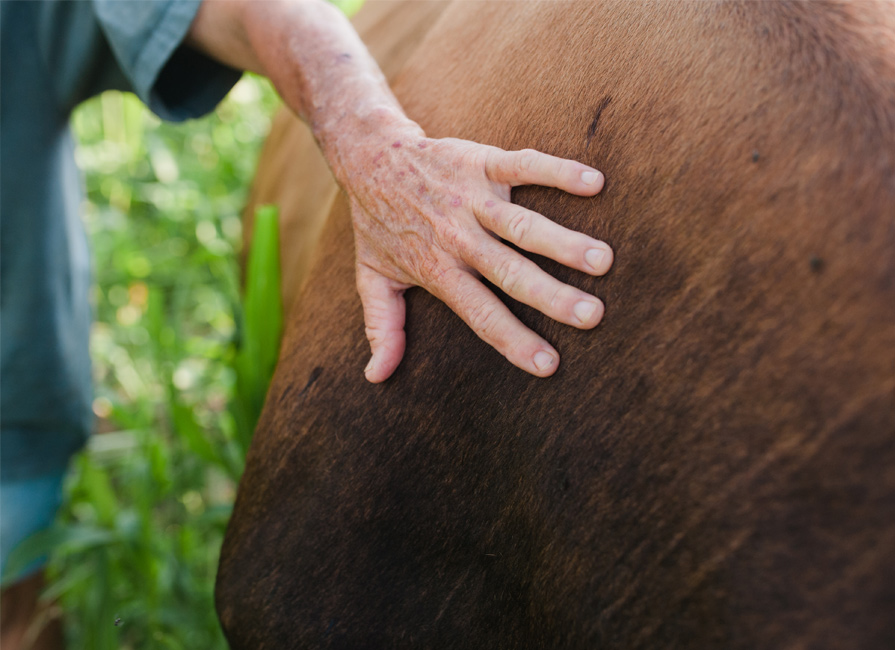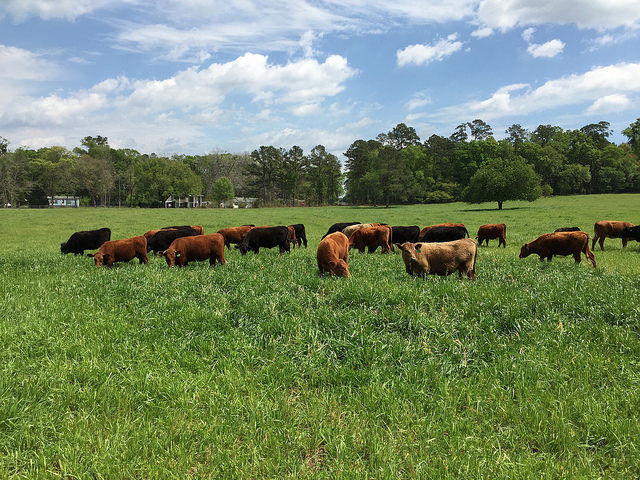Can We Really Expect Consumers to Shake Every Farmer’s Hand?
“Eat meat from people whose hands you can shake and whose ranches you can visit.” This was the take away from a recent OpEd that has been making the rounds, written by Ariel Greenwood, grazing manager at Freestone Ranch in the San Francisco Bay area. Ariel is a rancher whose heart is clearly in the right place. In her beautifully written OpEd, she outlines all the hard work they put in to restoring the health of the local (and global) environment,…
Fit Or Fat?
Certified Animal Welfare Approved by AGW standards require farmers and ranchers to maintain all animals at a Body Condition Score of 2 or more, while breeding animals must not exceed a score of 4 (both on a scale of 1 to 5). But what does this mean—and how can Body Condition Scoring be used as a livestock management tool? What is Body Condition Scoring? Body Condition Score (BCS) is a measure of an animal’s energy reserves (or fat reserves) and…
The Twelve Days of Business
This year, in a twist on our usual “Top Gifts from Big Ag,” we present the "The Twelve Days of Business," featuring special ‘gifts’ from Big Food, industrial agriculture and the corporations that now dominate our rural communities. Enjoy, and stick around for the good news on the 12th! On the first day of Business Big Food gave to me… Dirty Tricks To Cover Up Risks? Smearing individual scientists… ghost writing counterfeit science… interfering in government decision-making processes… secret tip…
Is “Grassfed” becoming the new “Natural”?
With all the words and phrases on today’s food packaging, food writers, bloggers and advocacy groups now play a vital role once occupied by scientists and practitioners in educating consumers, helping them navigate the ‘food labels minefield.’ It’s a big responsibility. Thanks to the internet and social media, one blog or OpEd can influence many thousands of readers, and become the new fact, affecting food shopping decisions and dietary trends. So it is vitally important that the issues are well-researched,…
Methane: Cattle Are Not Solely to Blame
A professor at Cornell University is suggesting that shale gas and shale oil production—and not cattle—are the most likely cause of a steep increase in global methane emissions. Robert Howarth, professor of ecology and evolutionary biology at Cornell University—and an expert on the atmospheric implications of methane—is challenging a spate of recent scientific papers that blame farmed cattle for a recent spike in global methane emissions. Instead, Howarth says methane emissions associated with the recent expansion of shale gas and…


